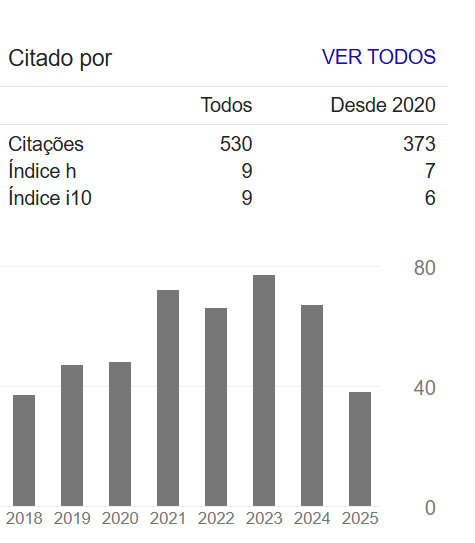Submission Preparation Checklist
As part of the submission process, authors are required to check off their submission's compliance with all of the following items, and submissions may be returned to authors that do not adhere to these guidelines.- Is the contribution original and unpublished, and is it not being evaluated for publication by another journal? Otherwise, it must be justified in "Comments to the editor".
- Is the submission file in Microsoft Word or RTF format?
- Have URLs for referrals been provided when necessary?
- Does the text follow the journal's norms, style standards and bibliographic requirements described in Guidelines for Authors, on the About the Journal page?
- In case of submission to a peer-reviewed section (eg articles), were the instructions available in ensuring blind peer review followed?
-
Were the cited references inserted at the end of the text, in a pattern provided in the Guidelines for Authors?
We remind you that the references must also be copied in a text box when filling in the metadata at the time of submission. - It is required fill in the biography providing the link to curriculum Lattes (except foreigners) and ORCID.
- The manuscripts submitted and, if accepted and published, have their copyright ceded to the journal. The articles published here are free to use, intended for educational and non-commercial applications.
Articles
Section destined to texts resulting from research in an advanced state of development, of free theme. Texts submitted to this section will be evaluated by peers in a "double-blind" system, guaranteeing the anonymity of the author and the referee. Contributions must follow the steps for preparing the manuscripts according to the rules set out in Guidelines for Authors in the "Submissions" submenu.
Dossier
Section designed to publish articles with a theme proposed by researchers invited by the journal that will organize it. The manuscripts submitted to this section will be evaluated in a "double-blind" system by the peers, in agreement with their organizers. The calls to compose dossiers will be launched by the journal in the "News" menu and published on social networks linked to this periodical.
Interviews
The section is intended to publish interviews submitted in a continuous flow with a free theme or by the editors' idea, linked or not to the dossier theme. The rules for its elaboration will prioritize the quality of the questions, as well as the transcription (in cases of original audio capture). The evaluation will be carried out by the journal's editors.
Essays
Section for the publication of essays in the areas of the Humanities, in free themes. The evaluation will be carried out on a "double-blind" basis by the peers.
Principles
Section for the publication of research results of graduates who have developed research on Scientific Initiation and Master's students. The journal will submit the texts to the same evaluation process as the others. The number of texts published for this section will be limited.
Reviews
This section is intended to receive reviews of works in the areas of the Humanities, published no later than three years before the submission date. The manuscript will be evaluated by the responsible section editor, prioritizing the form and content (according to the Guidelines for Authors). The opinion will be forwarded by the section editor.
Tradução
Original translations of articles of fundamental importance to the field of History, Arts an Culture Studies are also welcome.
Cultural Critics
The Cultural Critics section is the sole responsibility of the editors of Albuquerque: journal of Cultural Studies. In this section, priority is given to: Texts and criticisms related to culture, without the need for a link to the call for the thematic dossier of each issue, submitted for evaluation by the Editorial Board; Interviews; Depositions; Testimonies; Fiction (chronicles, short stories, poetry, visual images etc.).
Copyright Notice
The copyrights are all granted to the journal. The articles whose authors are identified represent the expressed opinion of its authors and not the official position of the Albuquerque: journal of Cultural Studies.
Privacy Statement
The names and addresses informed in this magazine will be used exclusively for the services provided by this publication, and will not be made available for other purposes or to third parties.




1.png)










